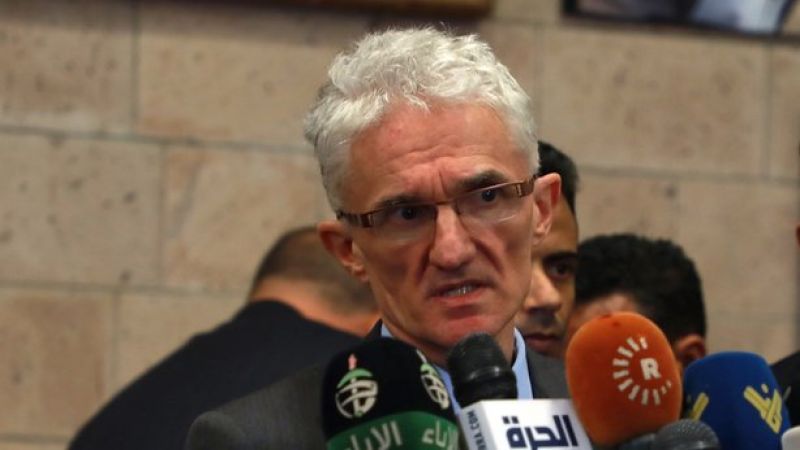
Local Editor
The UN has warned that Yemen was "on the brink of a major catastrophe", as the world body pushes for peace talks in the impoverished and war-torn country.
The comments from UN aid chief Mark Lowcock come after renewed deadly clashes between Houthi revolutionaries and pro-regime forces in the Red Sea port city of Hodeida, vital for the flow of humanitarian aid.
"Yemen is on the brink of a major catastrophe," Mr Lowcock said, as he wrapped up a visit to the country.
He said conditions had deteriorated alarmingly since his last visit to Yemen in October 2017, which the United Nations has termed the world's worst humanitarian crisis.
"In Aden, I met emaciated children so malnourished they could barely open their eyes," Lowcock said in a statement.
"Humanitarian assistance helps many of these children recover. But I also heard heartbreaking stories of children relapsing again and again because their families simply can't afford food or proper medical care," he said.
Lowcock reiterated the UN's readiness to play a role to ensure that the rebel-held Hodeida port, a key entry point for imports and aid, can remain open.
Under heavy international pressure, Saudi-backed pro-regime forces have largely suspended an offensive launched in June to take the port city.
Sporadic clashes have, however, continued since a fragile truce began on 13 November.
Fighting on Friday in the east and south of Hodeida left 10 fighters dead, medical sources told AFP.
The violence follows a visit to Hodeida last month by UN envoy Martin Griffiths to press for talks.
The proposed peace talks have been backed by both the rebels and the Saudi-led government and were expected to take place in Sweden next week.
UN Secretary-General Antonio Guterres, however, has played down the early December schedule and said he hoped talks would start "this year".
"But, as you know, there have been some setbacks," he said on Thursday.
Previous talks planned for September in Geneva failed to get underway as the Houthi delegation never left Yemen's capital Sana’a after the United Nations failed to guarantee their safe return.
Lowcock said it was "not too late" to pull back Yemen from the brink but warned that more resources were needed.
"Yemen is the world's largest humanitarian operation, but in 2019 it will need to be substantially bigger," he said.
Donors this year have provided $2.3 billion for the 2018 response plan, or about 80% of requirements, he added.
According to UN figures, nearly 10,000 people have been killed since the Saudi-led coalition joined the conflict in 2015 to bolster the resigned regime against Houthi revolutionaries.
UN agencies say that 14 million people are at risk of starvation in Yemen.
Source: News Agencies, Edited by Website Team